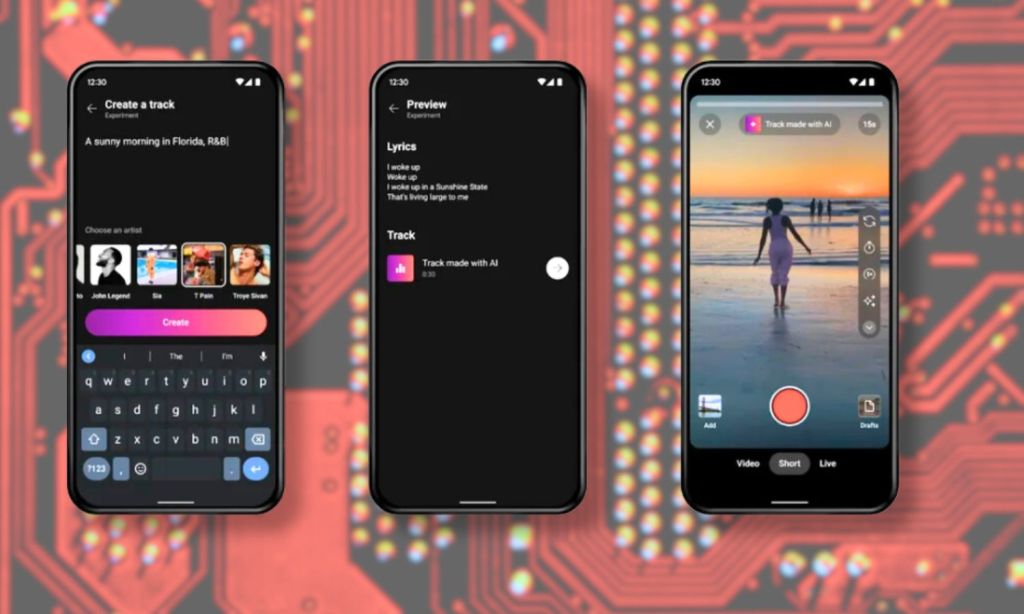YouTube has released details of its latest experiment with AI and music in the form of a new function called Dream Track for YouTube Shorts. Built in collaboration with Google’s DeepMind AI programme, the software allows creators to recreate the stylings of famous musicians at the touch of a button – or tap of the keyboard.
The US internet juggernaut says Dream Track is powered by “Google DeepMind’s most advanced music generation model to date” known as Lyria.
Nine musicians – Alec Benjamin, Charlie Puth, Charli XCX, Demi Lovato, John Legend, Papoose, Sia, T-Pain, and Troye Sivan – have opted in to have their voices cloned and used by the AI programme to be turned into brand new songs.
At present, the tool has only been released to a select group of YouTube creators and a number of safeguards put in place. “All of the obvious keywords will get blocked,” YouTuber Cleo Abram has said in a video debuting the new technology. The artists in question will also have veto power in being able to remove any songs created that they don’t like.
YouTube has said that it chose to work with artists who were “intensely curious about AI tools.” The technology is the first release of YouTube’s Music AI incubator programme which the company revealed earlier this year.
“YouTube has been a great partner in outlining their approach to AI and understands the need to work together to develop this technology responsibly, ensuring it will accelerate creativity instead of replacing it,” musician Charli Puth said in a media announcement.
Whether that’s true or not remains to be seen.
YouTube’s AI Problem
The rise of AI technology, which has dominated headlines this year, has come with a whole host of problems for businesses, including Google, the parent company of YouTube. They have been in a big legal battle with record labels like Universal Music Group, which wants music created with AI-generated vocal samples of musicians it owns the copyrights to taken down.
The issue with AI is that it’s not yet been established who exactly owns the copyright to an AI-generated voice. Google is in a tough spot because it wants to be able to continue scraping the entire internet – the sum total of all human knowledge – to train its advanced AI systems like DeepMind without having to pay a cent to do so.
In announcing its AI Incumabtor programme in August, YouTube revealed that it had made a deal with Universal to track and remove AI-created content that violates Universal’s copyright ownership over musicians. Of course, the tools they’re using to do this are AI.
This latest announcement from Google is a glimpse into the future of how big tech plans to deal with the crisis of AI. Rather than ban AI altogether or move back to the slow and costly method of licencing music individually for each YouTube video, Google has developed a method to keep copyright holders and its advertisers happy. AI will be allowed within parameters defined by the company when and only when there is explicit say-so from artists whom they can benefit from.
In August, The Verse wrote that this solution, which we’re now seeing the end result of, is likely to result in YouTube’s Content ID AI tracking programme becoming wildly overzealous and flagging everything it believes infringes copyright.
Since the recourse to getting content back online after it has been flagged is a lengthy and costly court proceeding, it seems that YouTube has basically sacrificed creative freedom to keep record labels happy.
Related: AI Is Creating New Music From Our Favourite Musicians Who Have Passed
Related: Video May Have Killed the Radio Star, But Will AI Kill the DJ?
Read more stories from The Latch and subscribe to our email newsletter.







